- September 9, 2021
- Coauthors: Rebecca Fitzpatrick, PharmD & Emily Vyverberg, PharmD
- Healthy Living
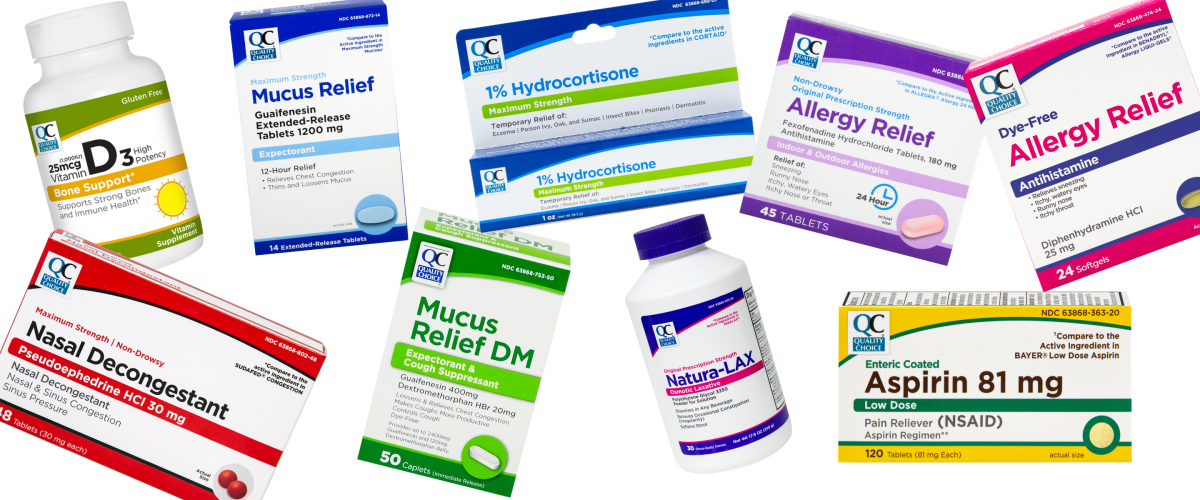
There are many medications available over-the-counter (“OTC”), and it can be overwhelming to decide which product is best for you, especially when you aren't feeling the greatest.
There are a handful of medications that we, as pharmacists, get asked about all of the time. Here are seven common OTC medications available and their benefits.
1. Heart Health – Aspirin
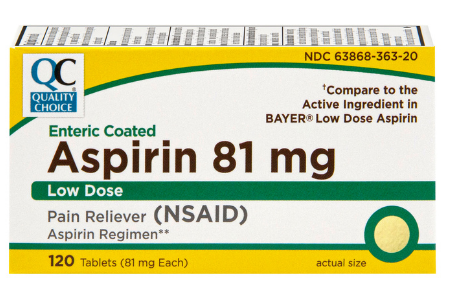
Aspirin is often used to help lower the risk of heart attack or stroke by preventing platelets from binding together to form clots. The United States Preventive Services Task Force (USPSTF) recommends using low-dose aspirin to prevent heart disease and colorectal cancer in patients aged 50-59 years old at high risk of an event (like a heart attack or stroke). The current task force and medical experts are currently working to revise these guidelines based on clinical criteria, studies and outcomes. Before initiating daily aspirin therapy, speak with you’re your primary care provider and pharmacist to ensure you are a candidate for aspirin therapy.
Because aspirin prevents platelets from binding, patients should be aware of increased risk of bleeding. Aspirin should also be avoided in anyone <18 years old as it can cause Reye's Syndrome if given for treatment during some viral infections. In children, it is best to give acetaminophen or ibuprofen instead of aspirin.
2. Allergies – Antihistamines
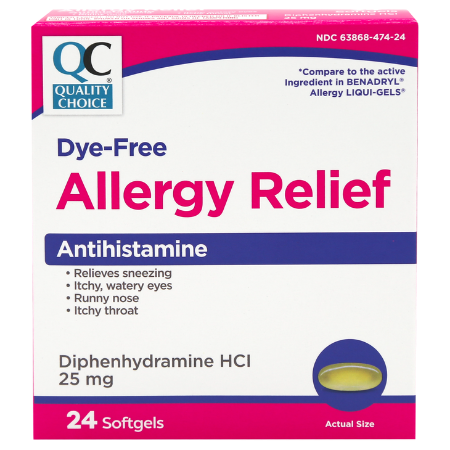
Diphenhydramine (commonly referred by the brand name Benadryl) is a useful medication for sleep, allergies, allergic reactions, hives/rashes, etc. It causes drowsiness and is listed on the high-risk medication list for patients 65 years and older, as it can increase the risk of falls and confusion. Many common brands of medication (i.e., Tylenol PM, Nyquil, etc.) also have diphenhydramine in the formulation.
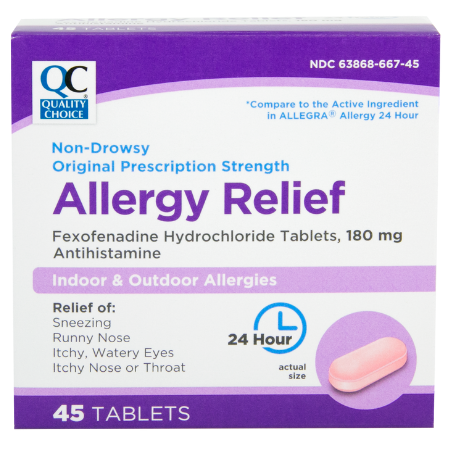
There is a time and place for this medicine, but if you are experiencing a runny nose or itchy/watery eyes from seasonal allergies, you may be better off taking loratadine (Claritin) cetirizine (Zyrtec), or fexofenadine (Allegra). These medications are cause less drowsiness while still providing allergy relief. These medications are usually taken once daily, whereas diphenhydramine is given every 4-8 hours.
3. Constipation - Polyethylene glycol
Commonly known as Miralax
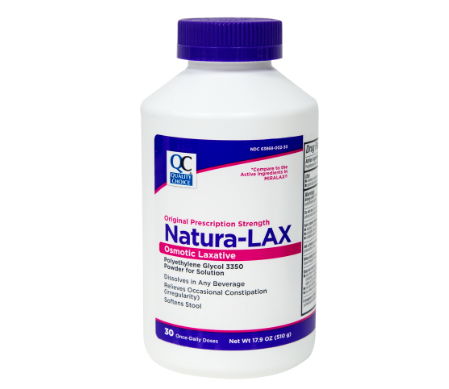
One of the most common questions we hear from patients looking for OTCs is, "What can I take to make me go to the bathroom?" To better determine what you should take, we first ask a few questions: what is your regular bowel schedule, when was your last bowel movement, what have you already tried, how is your diet and hydration intake, and if you've ever had a bowel impaction or surgery on the area. Our top choice for constipation is polyethylene glycol (Miralax) because it is safe and effective. It will take 2-3 days to see a benefit with consistent use, and because it's a powder that you'll mix in with water, it will help increase your water intake.
Remember to drink about half your body weight of water in ounces to stay hydrated and keep things working normally. If, for example, you are 200 lbs… you would want to drink 100oz of water per day.
4. Rash/itching - Hydrocortisone Cream
Commonly known as Cortizone-10
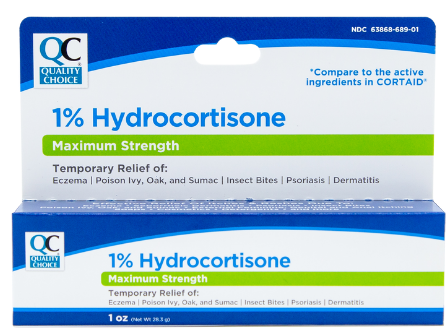
With the summer comes itchy rashes and bug bites. Hydrocortisone cream (Cortizone-10) is one we see used a lot for both of these issues. It is a steroid and will help with itching, redness, pain, and inflammation. A little goes a long way, so use it sparingly and only for 1-2 weeks at a time. It is recommended to take a 1-2 week break, as continued use can cause thinning out of the skin, among other problems. Remember to wash your hands after applying so you do not get it in other places. If your rash, pain or swelling is unexplained (i.e., you don’t know where it came from) or continues for more than a couple weeks, seek medical attention.
5. Mucus buildup and Cough - Guaifenesin/Dextromethorphan
Commonly known as Mucinex-DM
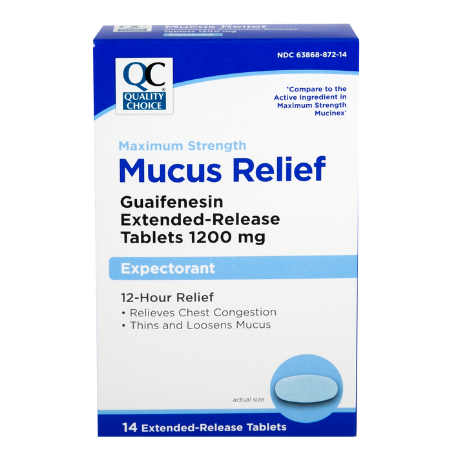
Many patients experience phlegm and can't seem to get it out of their chest and throat. guaifenesin (Mucinex) is a medication used to thin the mucus and make it easier to cough up. It is a relatively safe medication and comes in a variety of formulations (liquids and tablets). In addition, it is important to stay well hydrated while taking guaifenesin which will help you clear phlegm and mucus more easily.
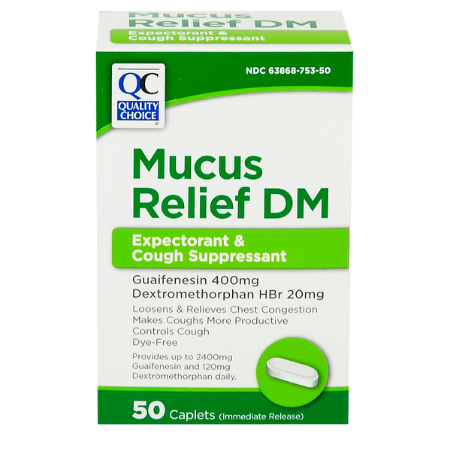
Another ingredient that is often paired with Mucinex is dextromethorphan. This is most commonly used to help suppress a cough. As a rule of thumb, if your cough is productive and you can get phlegm and mucus out by coughing, we generally don't want to suppress it too much since it serves a purpose. Suppose your cough is not productive or affects your sleep. In that case, this is generally a good time to take a combination of guaifenesin and dextromethorphan (Mucinex-DM) to thin the mucus AND stop the cough.
6. Congestion - Pseudoephedrine
Commonly known as Sudafed
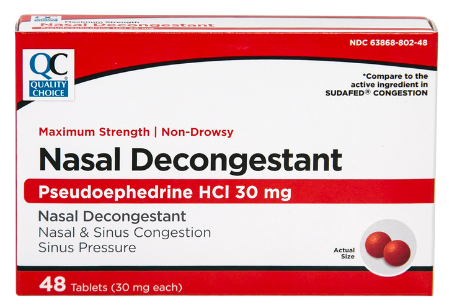
With a change of seasons and cold and cough season approaching, it is common to get congested. Specific symptoms of congestion include a stuffy or plugged feeling in the nose and sinus pressure, usually felt as a headache or facial pain.
Individuals with high blood pressure and other heart conditions should avoid pseudoephedrine (Sudafed), especially without talking to their doctor first, as this medication can increase blood pressure and heart rate.
This medication is kept behind the pharmacy counter, but you do not need a prescription to purchase it. You must be 18 years or older and must present a valid government-issued I.D. (i.e., driver's license) to buy it.
7. General Health - Vitamin D3
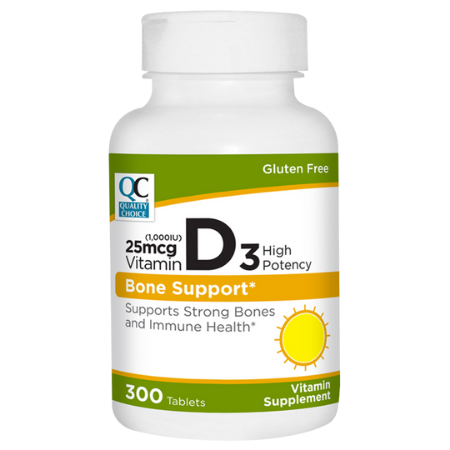
Vitamin D3, a.k.a. cholecalciferol, is a vitamin that has gained traction recently during COVID as possibly able to help prevent infection. Vitamin D3 helps with bone health by helping your body absorb calcium and also can increase energy levels. It is difficult to get vitamin D3 from food and sometimes hard to get enough from the sun due to weather or risks of skin cancer. A lab test can be drawn to see what your serum 25(OH)D concentration is. The Institute Of Medicine (IOM) supports 25(OH)D concentrations above 20 ng/mL (50 nmol/L). The best level depends on your age and overall health and is controversial.
Vitamin D is one of the few fat-soluble vitamins and can build up in your body and eventually leads to having "too much of a good thing." So, take this medication as directed and talk to your pharmacist and provider about established dosing recommendations.
Although many OTC medications are commonly referred to by their brand name, don't forget to check private label offerings of the same medications! Hartig Drug's private label, Quality Choice, has so much to offer at a lower cost! To see the savings comparison between brand name and Quality Choice, stop by your local Hartig Drug today!







